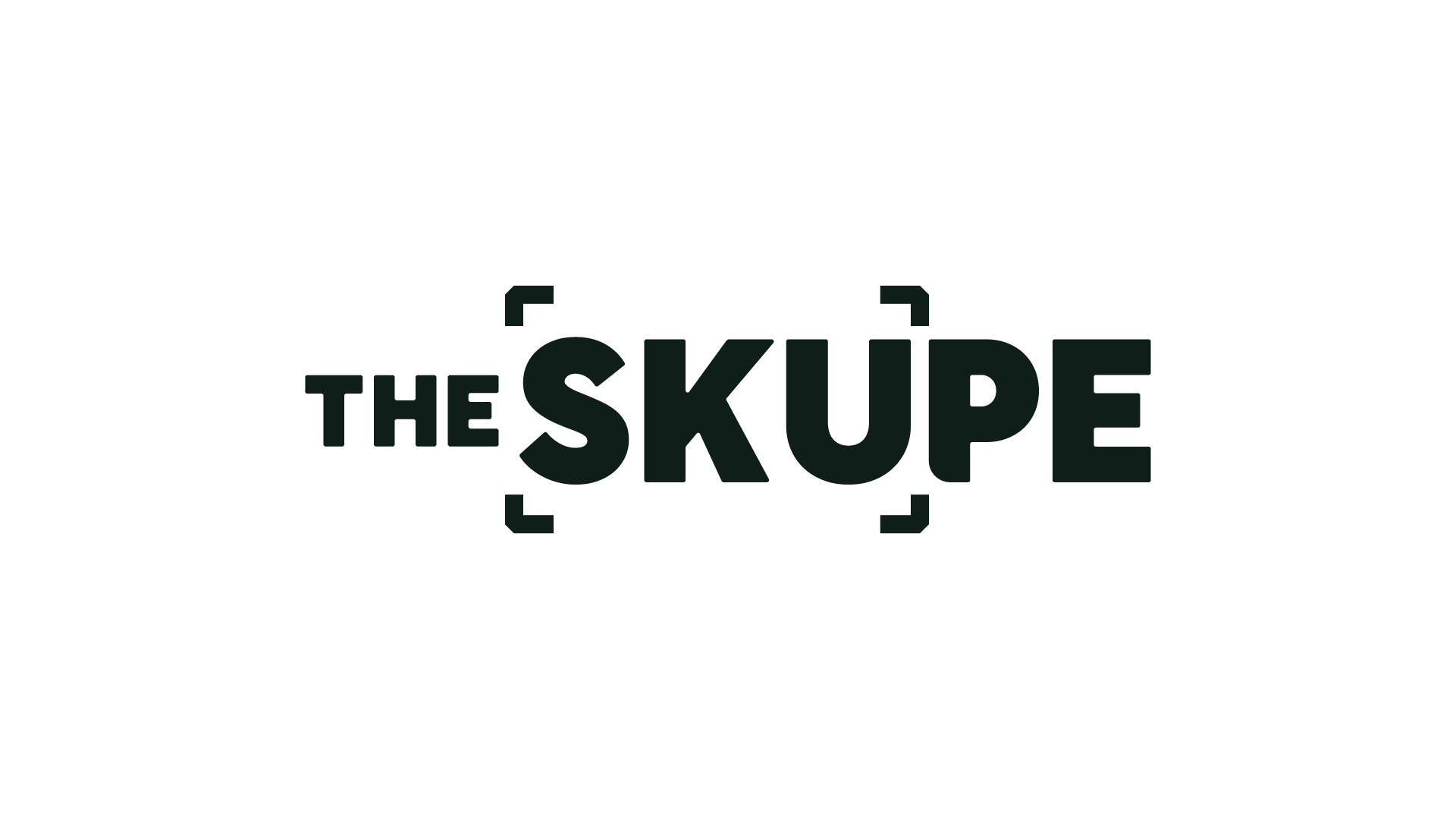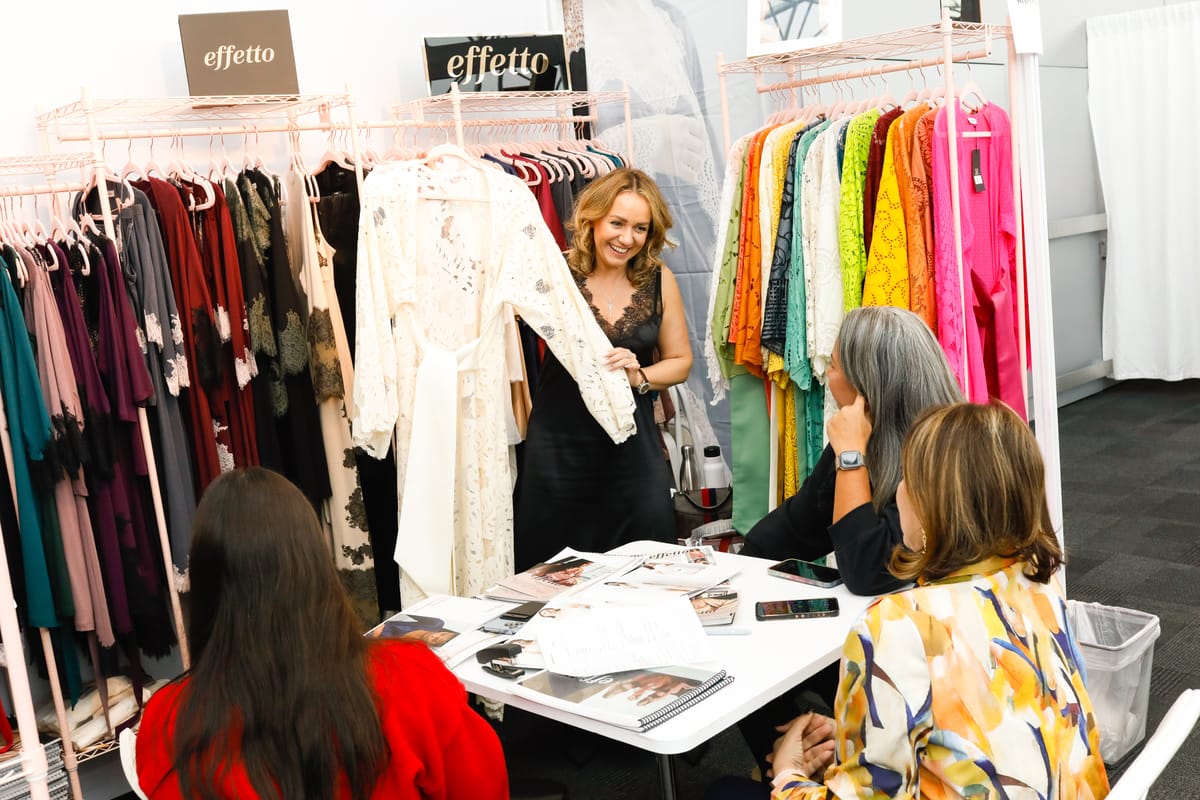Plus: Can these tips help train your sales associates?
Loyalty matters. And it's not a one-size-fits-all program.
This week, we examine ways to deepen customer loyalty and secure that all-important second sale. Key to sales is your retail staff, and training is a multi-day undertaking for specialty stores Goop and Bluemercury. We look at what they're doing right, as well as AI for SMBs along with TV shows, hotels and other resources geared toward small businesses.
We also sat down with Curve tradeshow's Raphael Camp to find out how it's evolved from a three-day event to a year-round community for retailers and brands. Let's jump in.
But first, will that be card, cash...or crypto? PayPal says crypto.

Artificial confidence? Consumers don’t trust retailers’ use of AI.
Desert storm: Martha Stewart stores debut in Dubai.
Chatty checkout: Chat GPT developing a checkout feature.
Silent thieves: Store inefficiencies cause more shrink than ORC.
Tech 101: Meta hosts AI trainings for SMBs.


Ahead of the Curve: "The intimates category has grown beyond the traditional lingerie shop model"
As tradeshow season continues, we sat down with Raphael Camp, CEO of Comexposium U.S. & North America, which operates Curve, the intimate apparel expo taking place in New York, Los Angeles and Montreal, to find out how tradeshows have evolved from bi-annual in-person events into year-round communities for retailers and brands. —Marcy Medina
How has the tradeshow evolved since the pandemic?
Since the pandemic, Curve has become more than just a traditional tradeshow—it’s now a true community hub for the intimate apparel industry and the adjacent product categories (shapewear, hosiery, loungewear, sleepwear, swimwear, activewear, maternity and nursing wear, sexual wellness products). We’ve evolved in many ways from just our bi-annual, in-person event.
What are the new elements of the upcoming New York show, August 3-5?
We’re expanding our education series, adding more trend-focused panels; we’re excited to welcome editor-in-chief of Sports Illustrated Swimsuit, MJ Day, along with Elle fashion editor Madison Rexroat, to join trend forecaster Kendall Becker in a conversation about 2026 trends. We’re also hosting buyer roundtables and introducing immersive showroom-style spaces to help brands better tell their stories.
Sustainability continues to be a major focus, and this year we’ve enhanced our Eco Trail to spotlight brands prioritizing environmental responsibility. We’ve cultivated a partnership with Wolf & Badger and will be co-hosting an event in their Soho boutique, where brands can get their first retail footprint by way of the retailer. We’re also continuing our Curve Connect matchmaking program, which has been a great tool for fostering targeted meetings between brands and buyers.
What have you heard from exhibitors and buyers about how tariffs are affecting business and how are they working around it?
Tariffs, particularly those affecting imports from China, have definitely added complexity for both brands and retailers. We’ve heard that some brands are exploring new manufacturing countries, such as Turkey, India and parts of Latin America, to mitigate rising costs. Others are streamlining their assortments and focusing on core bestsellers to manage margins. Buyers, meanwhile, are becoming more selective, placing smaller initial orders with flexibility for reorders. The environment is pushing everyone to be more strategic, more nimble and to value strong vendor relationships.
Overall, how has the retail market for intimates changed?
The intimates category has grown beyond the traditional lingerie shop model. We’re seeing more fashion and lifestyle retailers, including those that previously focused only on ready-to-wear, adding lingerie, loungewear and swim to their assortments. Consumers are treating both intimates and swimwear as a style statement, not just a utility item, which has opened the door for crossover categories like bodysuits, bralettes and matching sets. Online, there’s been an increase in niche marketplaces and subscription models tailored to intimates. Overall, the category has become more inclusive, fashion-forward and innovation-driven than ever before.

Customer retention: The second sale is more important than the first
Charlie Casey, CEO and co-founder of loyalty platform LoyaltyLion, shares these tips: Take advantage of the post-purchase window to capture customer attention with a thank-you email, follow-up suggestion or invitation to review; these can increase revenue by up to 30%. Show your customers you understand them by giving them a reason to return, whether it’s charitable donation options, exclusive access, early product drops or personalized offers. Use data to craft better touchpoints and be proactive—the opportunity is in the days and weeks following the first sale.
Why this matters: The second sale is a behavioral turning point, and a loyalty program can enhance the odds of a second purchase by nearly 50%. Members also spend 2.5 times more than non-members. (Retail Touchpoints)
What Goop and Bluemercury get right about sales associate training
Big-name beauty brands like Goop and Bluemercury are investing in hands-on, people-first training—and there's a lot smaller retailers can borrow. Goop’s approach breaks training into manageable parts: setting the right vibe on the floor, listening skills that drive sales, product deep-dives led by brand reps, and a mentoring setup that connects new hires with experienced staff (but not their manager). Bluemercury leans on real-world scenarios to help staff handle customer needs on the spot.
Whether you run a single shop or a few locations, the takeaway is clear: keep training ongoing, make it interactive and create space for questions. That’s how you build confident, capable teams.
Why this matters: Retail workers are the most important team members because they’re the first to meet new customers and they really do drive the business. (Glossy)

Hilton sees growth among SMB travelers, pushes direct sales
5 reasons to build a small business, not a startup
SMB Rx: Marcus Lemonis’ new show “The Fixer” to air on FBN
U.S. Bank rolls out free SMB education hub for non-customers
SMBs polled say they’re more confident in Trump economy

How to balance the art and science of merchandising
Jessica Rosario-Calcano has been a merchant for 23 years, leading the teams at menswear brands Perry Ellis and Original Penguin. She started her career in sales and still tells people, “If you want to know how to do anything in life, the first skill set you need to have is sales.” She ultimately chose to become a merchant because she wanted to help bring products to life, but quickly found that it’s both an art and science.
Her top three tips: start with relationships because merchants must deal with every department; take your feelings out of the equation in high-pressure situations; and be flexible. “Your expectations will someday let you down, and that’s OK,” she says. “We have to be agile responders.”
“Experience is going to be the counter-balance to AI. I see consumers yearning for real-life experiences in a way that they wouldn’t have before... It makes me feel comfortable that we can do both."
–Jessica Rosario-Calcano, VP of merchandising, Perry Ellis International
Why this matters: Many people think of merchandising as a creative pursuit, but leading with facts over feelings (empirical and qualitative data) is a better way to set yourself up for success. (Rethink Retail)

10 AI tools SMBs can use right now (and most are free)
AI might seem intimidating, but chances are, some of the business tools already in your arsenal are already using it. Here are 10 AI-powered tools small business owners can use right now: ChatGPT (everyday AI assistant), Claude (big-project AI partner), Canva (graphic design), Letterly (voice notes to written content), HubSpot (CRM and email marketing), QuickBooks Online + AI Insights (finance management), GitHub Copilot (coding), Pictory (videos), Fireflies.ai (meeting notes) and Perplexity (research). This article also gives you pro tips on how to use each one and a security checklist to keep your data safe.
Why this matters: Pretty soon, every SMB will have its own customized AI assistant, but there are plenty of solutions—many of them free—that you can start using now and upgrade as you grow. (Bit Defender)

Thanks for reading this week's edition!
You can reach the newsletter team at theskupe@mynewsletter.co. We enjoy hearing from you.
Interested in advertising? Email us at newslettersales@mvfglobal.com
The SKUpe is curated and written by Marcy Medina and edited by Bianca Prieto.






Comments ()